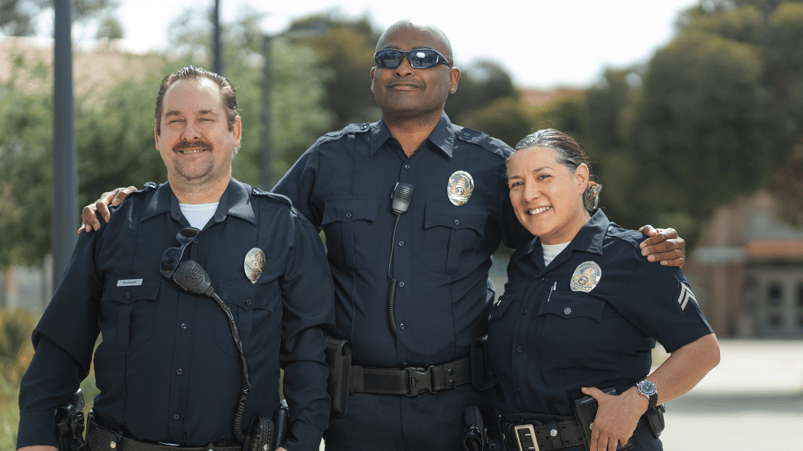 Social workers specializing in criminal justice have been dealing specifically with the rapid rise in police related violence since the onset of the COVID pandemic. They were surprised to discover that police are suffering from PTSD at an elevated rate. Yet this is what’s happening every day around the country as police officers with PTSD are thrust daily into fast-moving and dangerous situations. The estimated rates of PTSD in police officers range from 15% to 35%. In fact, the higher estimate is roughly equivalent to what the National Center for PTSD estimates as the lifetime prevalence of PTSD in combat veterans of the Vietnam War.
Social workers specializing in criminal justice have been dealing specifically with the rapid rise in police related violence since the onset of the COVID pandemic. They were surprised to discover that police are suffering from PTSD at an elevated rate. Yet this is what’s happening every day around the country as police officers with PTSD are thrust daily into fast-moving and dangerous situations. The estimated rates of PTSD in police officers range from 15% to 35%. In fact, the higher estimate is roughly equivalent to what the National Center for PTSD estimates as the lifetime prevalence of PTSD in combat veterans of the Vietnam War.
The Undo Stress of Police Work
Few jobs are more chronically stressful and dangerous.
- Officers respond day after day to situations fraught with potentially life-threatening crises, conflict, interpersonal violence, and heartbreaking grief.
- They do so in unfamiliar environments with parties they do not know who may be armed, under the influence of alcohol or drugs, or who may intend them or others harm.
- Police officers have to size up situations quickly and make split-second decisions based on incomplete information, where the stakes can be life and death.
- A study at the University of Buffalo looked at whether critical decision making by police officers could be negatively affected by underlying PTSD. Preliminary findings suggest that three PTSD-related factors could impair rapid decision making by cops in critical situations:
- Heightened nervous system arousal related to perceived threats.
- Inability to effectively screen incoming information.
- Inability to keep attention.
When Suffering From PTSD
Social workers taking a closer look at police violence report that a police officer harboring negative stereotypes and irrational beliefs about black people, the homeless, or the mentally ill (they are unpredictably aggressive and/or more likely to carry weapons), may be quicker to resort to violence when confronting these citizens. Imagine this officer is also suffering from PTSD, common features of which include reduced impulse control when feeling threatened as well as exaggerating or overreacting to perceived threats. When it comes to police violence against people of color, adding PTSD to negative racial bias in the pressurized context of police work is like adding gasoline to a fire.
Current Research
Social workers say that the police have been showing increased signs of PTSD—situational hyper-reactivity, rapid onset of fear/anger/agitation, reduced impulse control, overfocusing on a perceived threat, and failing to read the larger context—raising the possibility that many more of them than we realized had been dysregulated by PTSD. A study in the Journal of the Society for Social Work and Research looked at whether there’s a connection between levels of PTSD and “abusive policing,” which was defined as “the excessive or undue use of lethal and nonlethal force, excessive or undue use of threats of force,” and threats of sexual assault, psychological abuse, and “discriminatory slurs.” Researchers found that incidents of police abuse were highest in those officers who reported experiencing a “greater severity of PTSD symptoms.”
Hypocrisy
More study is needed to fully understand the severity of PTSD in police officers. However, the fact that many more are suffering from this traumatic disorder then was previously understood is an important red flag to our criminal justice professionals.
“The first thing we must do is leave hypocrisy behind. We all realize that our society needs someone to maintain order, but we send young men and women into the fray without concern for their emotional or mental welfare. Being the “sheriff” is part of our pop culture, and we embrace the ridiculous “hero” stereotypes created by Hollywood imagineers, while we’re quick to hold these same young people responsible for anything that goes wrong. That is the worst kind of hypocrisy. We must rethink society’s responsibility for policing itself and help those caught up on both sides of the criminal justice system rather than condemning them when they can’t handle the stress, we put them under,” a criminal justice social worker said.
Enjoying our blog? Check out the following recommendations...
Forensic Social Work...A Little Deeper Dive

